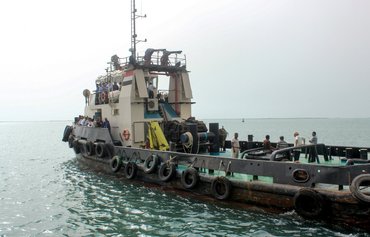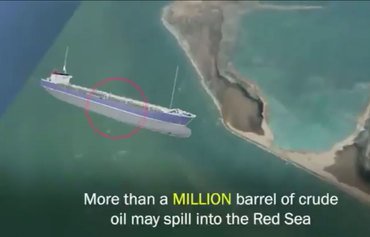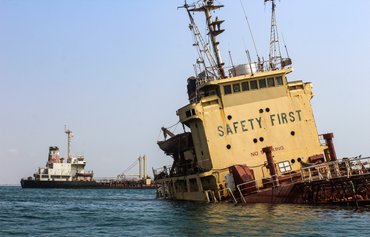Yemen's President Abd Rabbu Mansour Hadi on Thursday (September 24th) called on the international community to support his government in a "war imposed on it" by the Houthi (Ansarallah) militia and its backer Iran.
In a pre-recorded video address to the UN General Assembly, Hadi stressed that Yemenis reject the "Iranian model" amid a "savage escalation" of Houthi violence with no concern for the well-being of civilians.
The Yemeni government, backed by the Arab coalition, has been working to stop the bloodshed and establish a "safe and lasting peace", he said. It has supported UN special envoy to Yemen Martin Griffiths and offered concessions in order to allow for the resumption of the peace process.
"However, these efforts have been met with complete intransigence from the Houthi militia and their supporters in Iran," said Hadi.
State institutions were taken hostage and liberties were smothered, he said, adding that the Houthis transformed Sanaa into a "prison".
Hadi urged the international community to exert more pressure on "the Houthis and their backers in Tehran" to implement UN Security Council resolutions.
Yemen tanker crisis
Hadi also called on the international community to help avert an environmental disaster from the corroding Safer floating storage and offloading (FSO) terminal moored off the Red Sea port of Ras Isa.
"The Houthis have been refusing to allow UN teams access to conduct maintenance and repairs" on the tanker, he said.
In July, the UN Security Council issued a statement expressing its "deep alarm at the growing risk" and called on the Houthis to move ahead with granting access to the tanker.
But the Houthis are accused of ignoring repeated international pleas to address the crisis, AFP reported.
Western officials say the plight of the tanker has become a bargaining chip, with the Houthis accused of using the threat of disaster for their own gain.
In June, the Houthis said they wanted guarantees the vessel would be repaired and that the value of the oil on board used to pay salaries of their employees.
But the Yemeni government has said the money for the oil should be used for health and humanitarian projects in the shattered country.
Political analyst Faisal Ahmed told Al-Mashareq the Houthis have exploited the suffering of Yemenis to "serve Iran at the expense of the Yemeni people and regional countries".
"They have rejected all solutions and proposals for dealing with the Safer issue, which they are using as a tool to pressure the international community and regional countries to consolidate their position on the ground," he said.

![The children of Hadi Ahmed, who was forced to flee his home in the government's last northern stronghold which is under intense pressure from the Houthis, sit next to their belongings at the Suweida makeshift camp for internally displaced people in Yemen's Marib province on September 16th. [AFP]](/cnmi_am/images/2020/09/25/26271-Yemen-Marib-camp-600_384.jpg)






